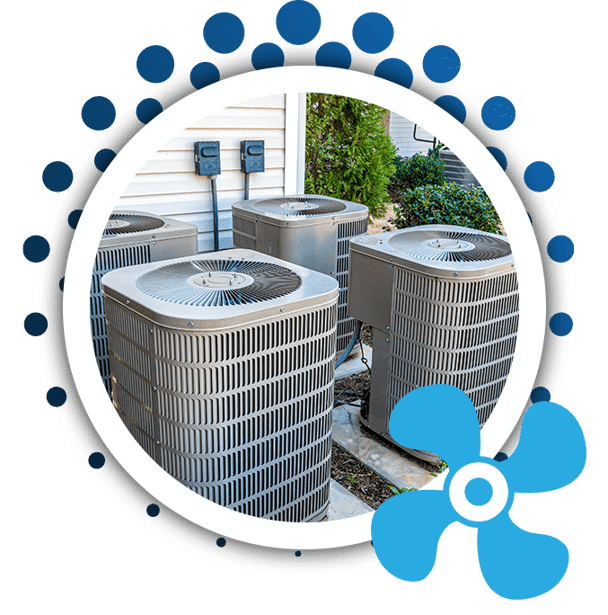Imagine it’s a hot Los Angeles summer day, and you’re sitting comfortably in your air-conditioned home in Culver City. You may believe your AC system is continually pulling in fresh air from outside to cool your house, but is that really the case? The way air conditioners work might surprise you. Their primary function is not to bring fresh air indoors, but rather to cool the air already present inside your home. But what does this mean for your indoor air quality, and can you do anything to improve it?
Understanding Air Conditioner Functions
While you may think air conditioners simply cool the air, they actually perform several key functions to keep your environment comfortable. Beyond chilling your space, they’re also hard at work controlling the quality of the air you breathe. We’re talking about more than just temperature control here – your air conditioner is responsible for controlling humidity levels too. That’s right, your AC unit works to reduce the moisture in your space, keeping you from feeling sticky and clammy.
Now, consider this – even though you’re indoors, you don’t want to feel cooped up, right? You crave the freedom of fresh air. But here’s the kicker: standard air conditioners don’t typically pull in fresh air from outside. Instead, they recycle and cool down the existing air within your space. It’s a closed system, designed to give you control over your environment without needing to leave windows or doors open.
The Role of Ventilation in AC Units
Even though your air conditioner doesn’t bring in fresh air, it plays a crucial role in ventilation to ensure the air inside your space is clean and breathable.
Your AC’s ventilation function is the hidden hero, freeing you from stale, uncomfortable air. It does this in a few key ways:
- Recirculates air: Your AC pulls in room air, cools it and pushes it back out, creating a steady flow of air movement. This circulation can help prevent hot or cold spots, and keep the air fresh.
- Filters: As your AC circulates air, it also filters out dust, allergens, and other particles. This can improve your indoor air quality, leading to better health and comfort.
- Dehumidifies: In addition to cooling and filtering, your AC also removes excess humidity, helping to create a more comfortable environment.
- Balances temperature: It ensures a balanced temperature throughout your space, providing a comfortable living or working environment.
Common Misconceptions About Air Conditioners
There are several misconceptions about air conditioners that you might have heard or even believe. Let’s debunk some of them right now.
Firstly, you might think air conditioners pull in fresh air from outside and chill it for your enjoyment. Not exactly. They actually recirculate the indoor air, cooling it down while removing humidity. Fresh air from outside isn’t directly pumped in.
Secondly, you might believe that cranking down the thermostat cools your room faster. It doesn’t. Your AC unit works at the same speed, regardless of the set temperature. All you’re doing is making it work longer, not faster.
Another misconception is that leaving your AC on all day saves more energy than turning it on when you’re home. It’s a myth. You’ll save more energy – and money – by using your AC only when you need it.
Lastly, some believe that bigger AC units are better. However, an oversized unit cools quickly but doesn’t remove enough humidity, leaving you with a cold, clammy room. So, size does matter, but bigger isn’t always better.
Don’t be trapped by these common misconceptions. Empower yourself with the right knowledge and enjoy your freedom to cool efficiently and cost-effectively.
Evaluating Indoor Air Quality
Understanding and evaluating your indoor air quality is crucial as it directly impacts your comfort, health, and overall well-being. You’re not just assessing the temperature, but also the cleanliness and freshness of the air you breathe. It’s about getting a clear idea of what you’re breathing in every day and how it might affect you.
Here’s a list of things you can do to evaluate your indoor air quality:
- Check for Dust and Dirt: If you’re noticing more dust on your furniture or floating in the air, it could indicate poor indoor air quality.
- Monitor Humidity Levels: High humidity levels create a suitable environment for mold and bacteria to thrive, which can negatively impact your air quality.
- Look for Signs of Mold: Mold is a clear sign of poor air quality. If you spot any, it’s time to take action.
- Consider an Air Quality Test: Professional testing can provide a detailed report on the air you’re breathing, including levels of allergens, pollutants, and toxins.
Optimizing Air Conditioner Usage
Maximizing the efficiency of your air conditioner isn’t just about saving on electricity bills, it’s also key to improving the indoor air quality of your home. To start, you’ll want to keep your AC unit well-maintained and clean. This helps prevent the buildup of mold and bacteria that can worsen the air quality.
Next, consider the temperature settings. It’s tempting to crank up the AC to the max on hot days, but you’ll get better air circulation at moderate settings. It’s a balance of comfort, cost, and air quality that you’re after.
Don’t forget about the filters. They’re your first line of defense against pollutants entering your living space. Change them regularly and you’ll breathe easier.
Lastly, use your AC in conjunction with other ventilation methods. Open windows and use fans when the weather’s cooler. This brings in fresh air and reduces your reliance on the AC. Need AC Repair? Call Service Genius today!
 On
On 
